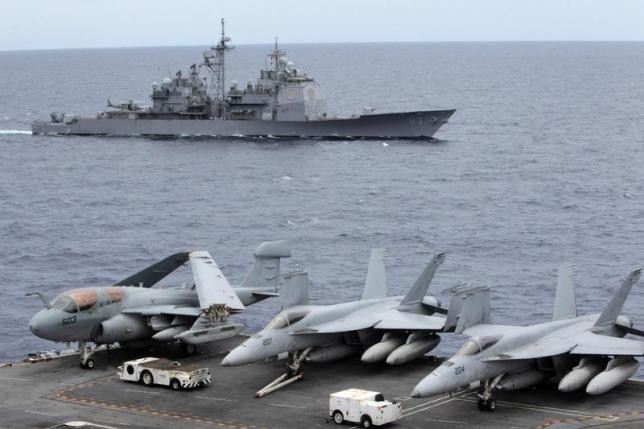Ties between the United States and China continue to simmer as Beijing aircraft intercept a military spy plane from the Western country, a feat Washington called "unsafe."
Two Chinese fighter jets intercepted an American military reconnaissance aircraft on Tuesday, May 17, when it was reportedly carrying out "a routine U.S. patrol" in the airspace of the disputed waters, per a Reuters report.
The two countries had previously exchanged accusations on the matter of territorial conflicts along the South China Sea and had raised tension on ties since then.
Unsafe Interception
On Wednesday, NBC News revealed a statement from Pentagon indicating that the interception of China's J-11 aircraft was "unsafe," noting that Chinese military pilots had improved over the years.
"Initial reports characterized the incident as unsafe," Defense Department spokesperson Lt. Col. Michelle Baldanza explained. "Over the past year, DoD has seen improvements in PRC actions, flying in a safe and professional manner."
The U.S. aircraft was identified to be a Navy E-P3 which had been flying in "routine patrol," Baldanza added.
The U.S. Pacific Command is currently probing the incident, which several reports noted to be at an impeccable timing to President Barack Obama's tour in Asia between May 21 and May 28, which would include his first visit to Vietnam and his attendance at a Group of Seven summit in Japan.
Reuters said the incident also happened a week after China ordered fighter jets to the area just as an American Navy ship sailed along the South China Sea.
U.S.-China Rumble on South China Sea
According to BBC News, China and the U.S. had repeatedly exchanged accusations regarding their military presences in the South China Sea.
China accused the U.S. of flexing its military muscles by increasing naval patrol in the area, while the Western country noted Beijing's enhanced militarization in the disputed territory.
"There is every evidence, every day, that there has been an increase of militarization from one kind or another. It's a serious concern," BBC quoted U.S. Secretary of State John Kerry as saying.
In response, Chinese Foreign Ministry spokesperson Hong Lei said that the U.S. made matters worse and "escalated tensions" in the region when they increased their military surveillance and presence there.
"That's the real militarization of the South China Sea," he declared.
China claims majority of the territories in the South China Sea where a hefty $5 trillion worth of ship-borne trade passes through annually.
However, these have been contested by neighboring nations, particularly Vietnam, Malaysia, Taiwan, Brunei and the Philippines, whose territories overlap with what China claims to be theirs.



























